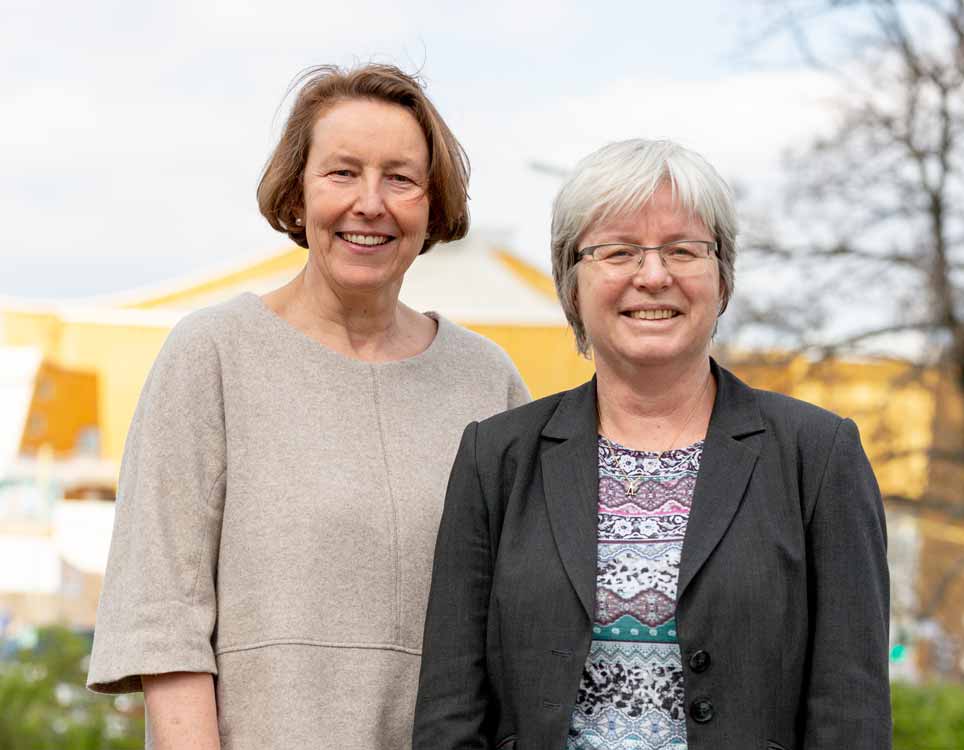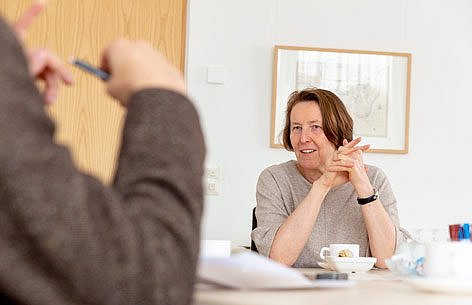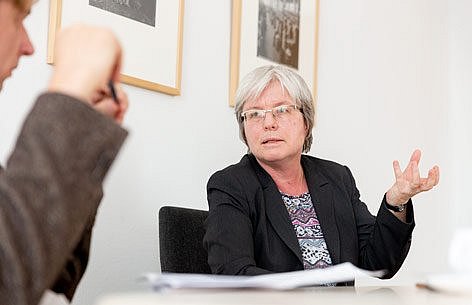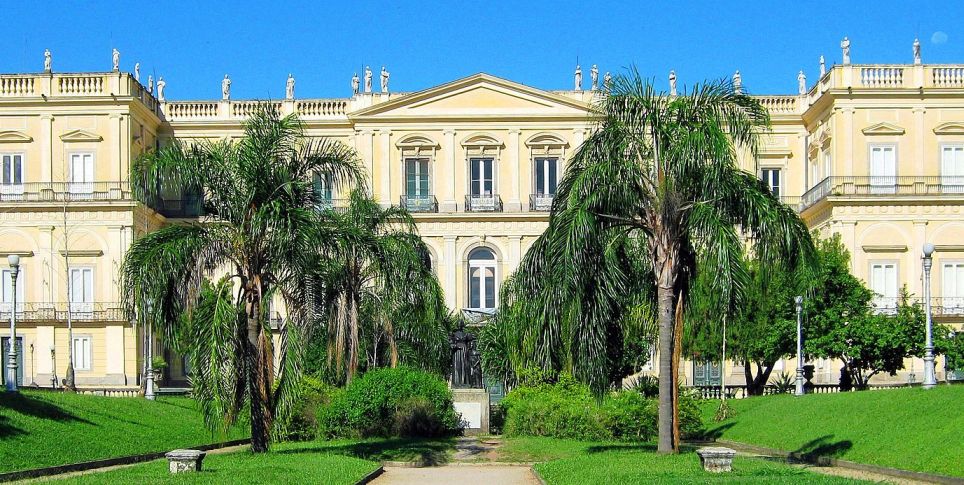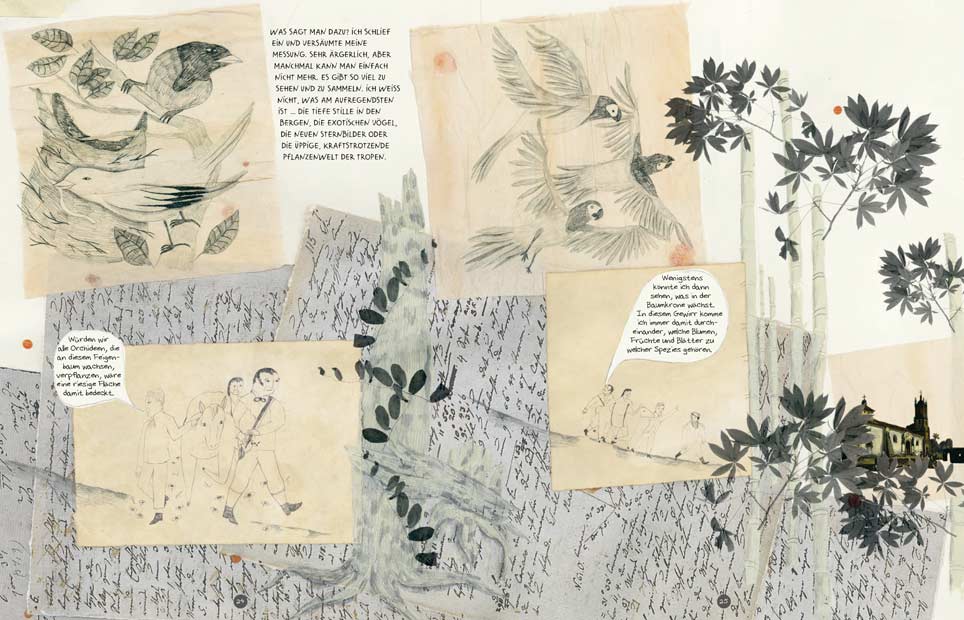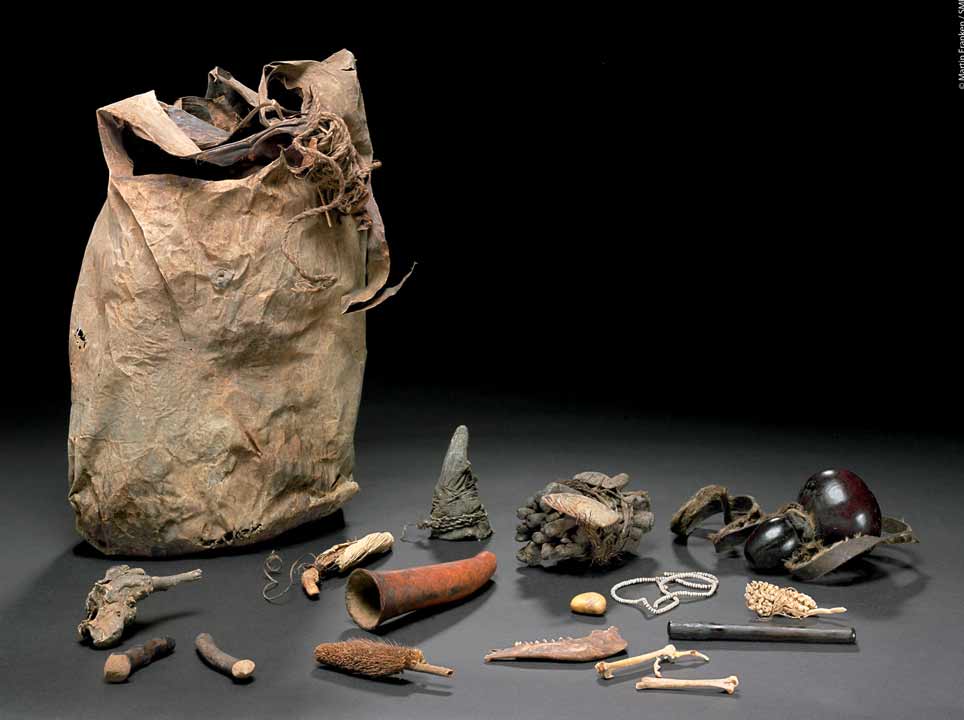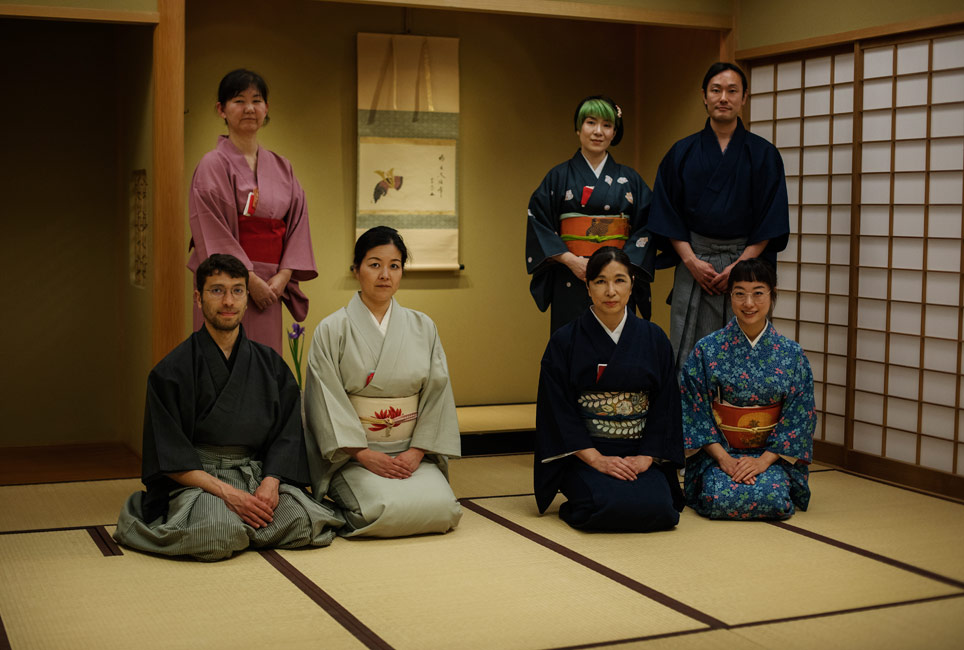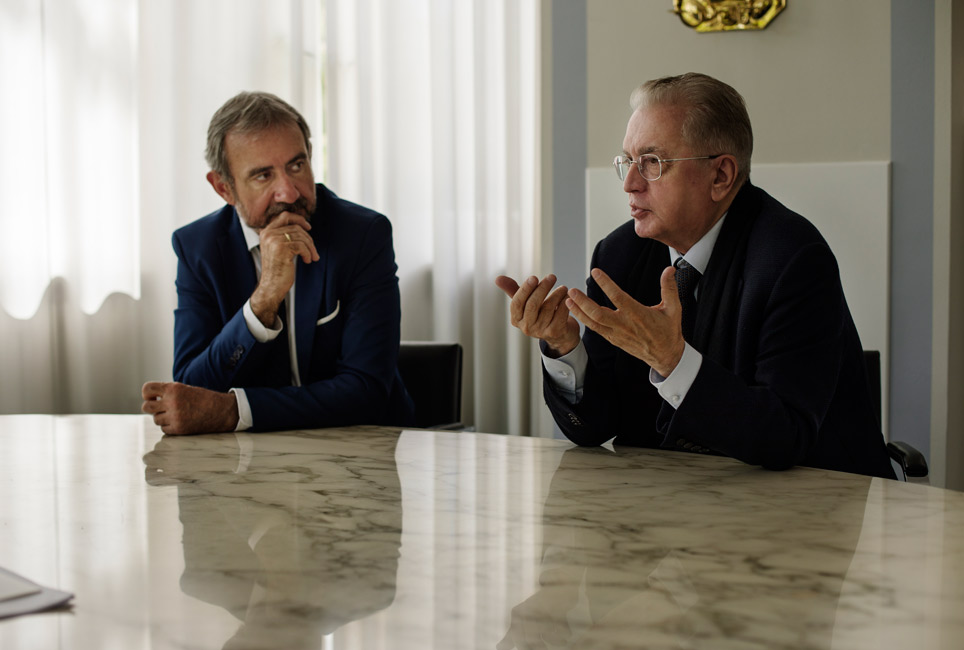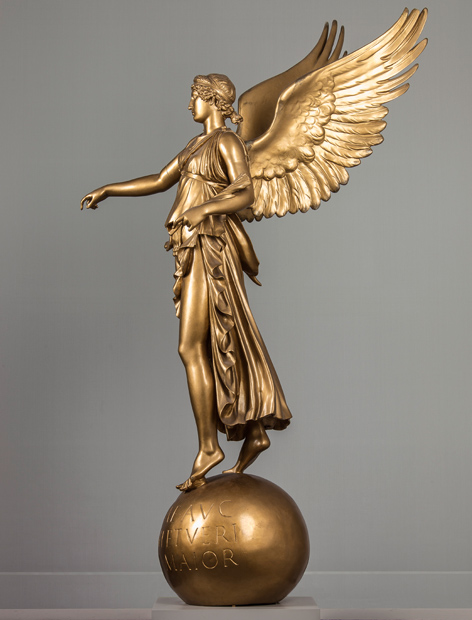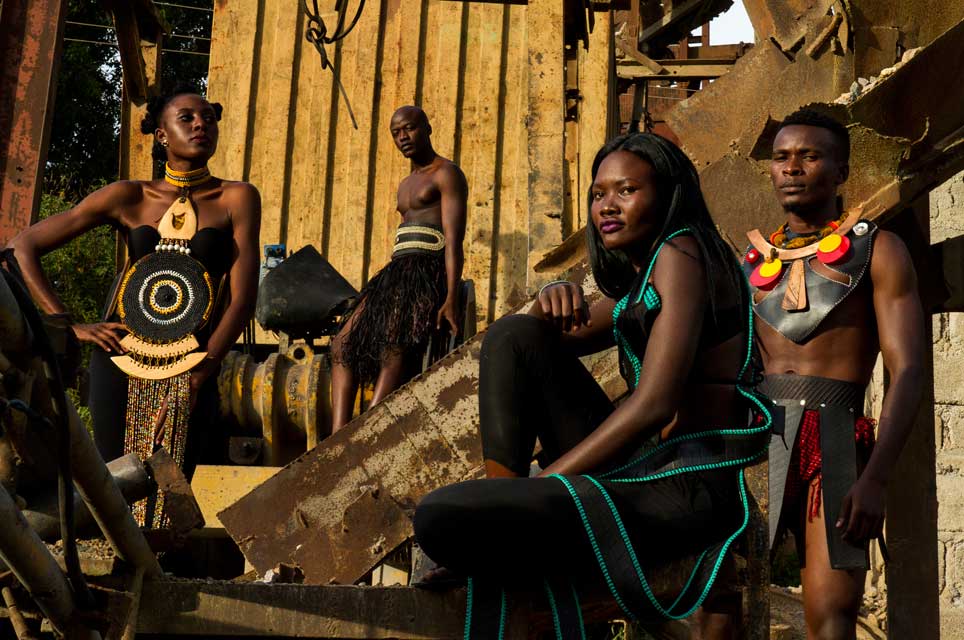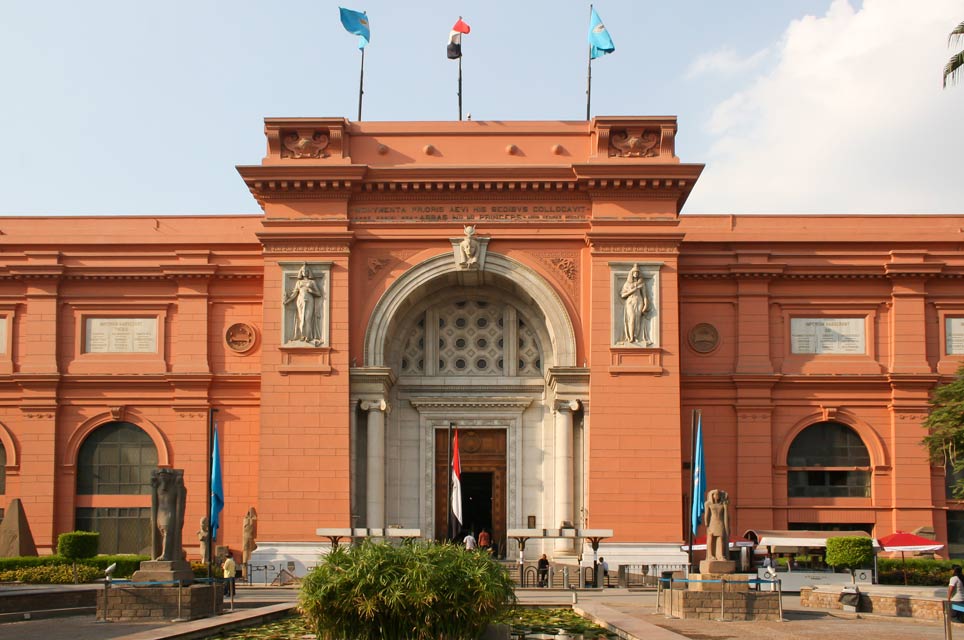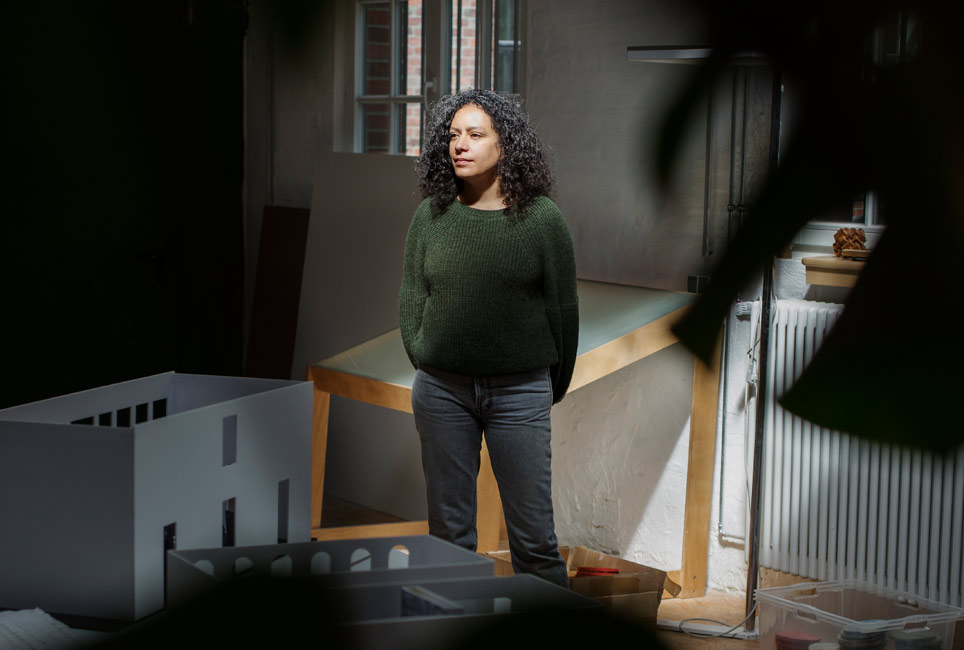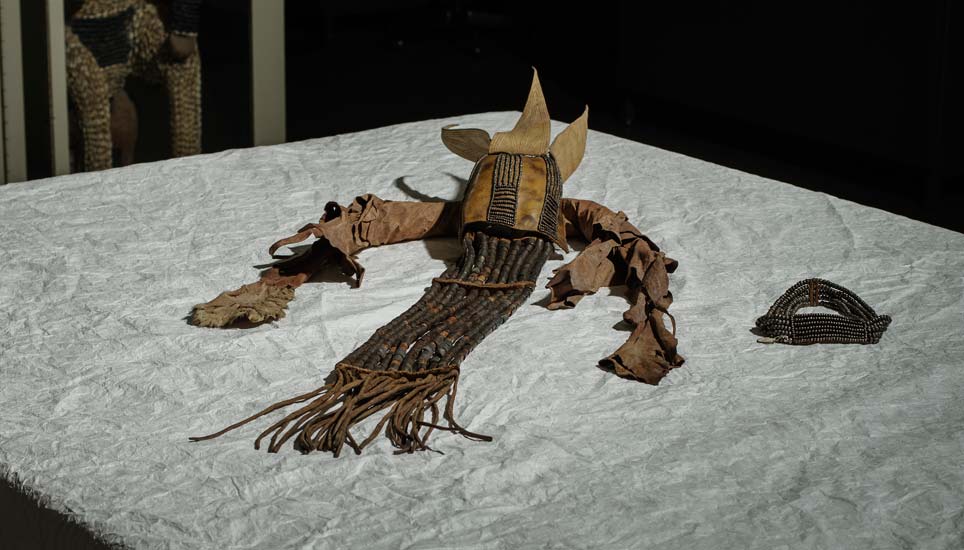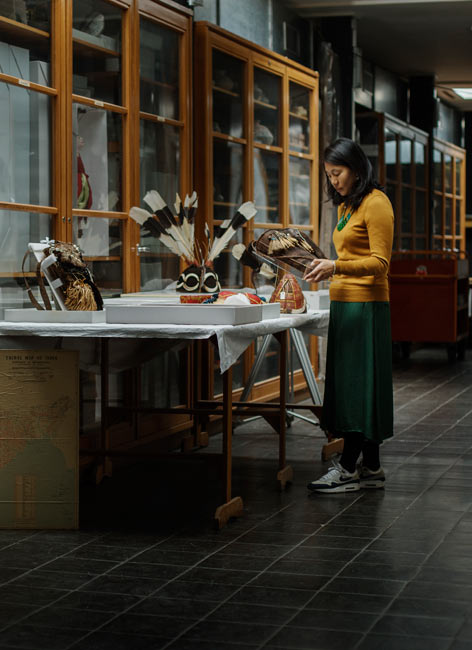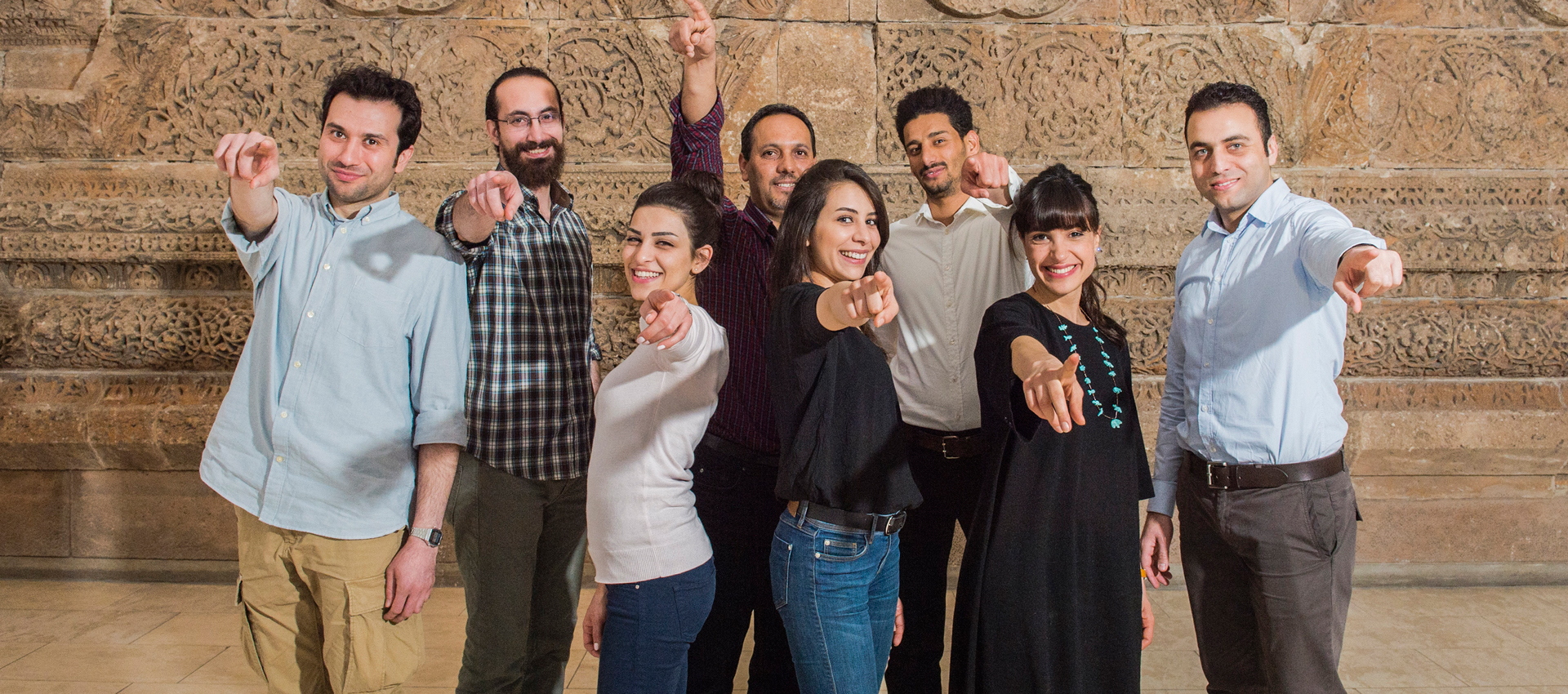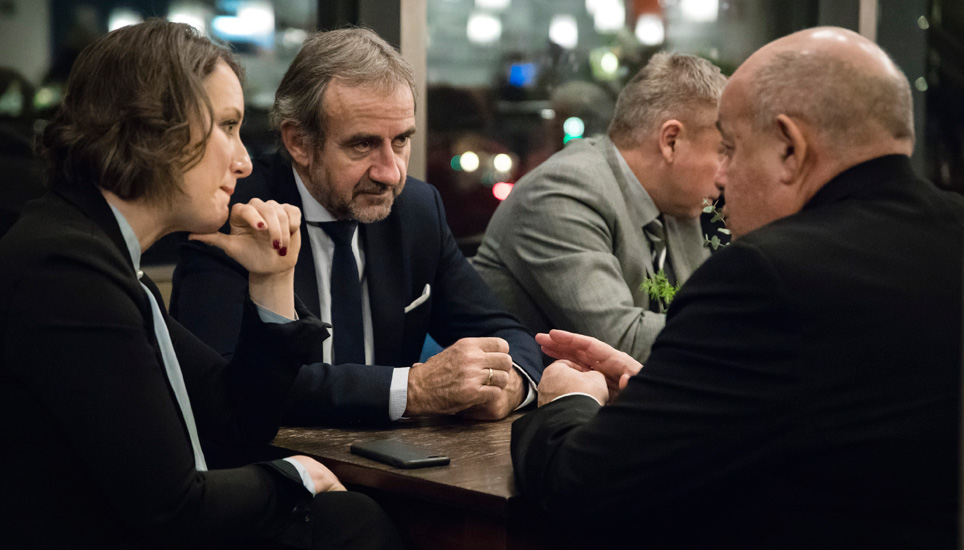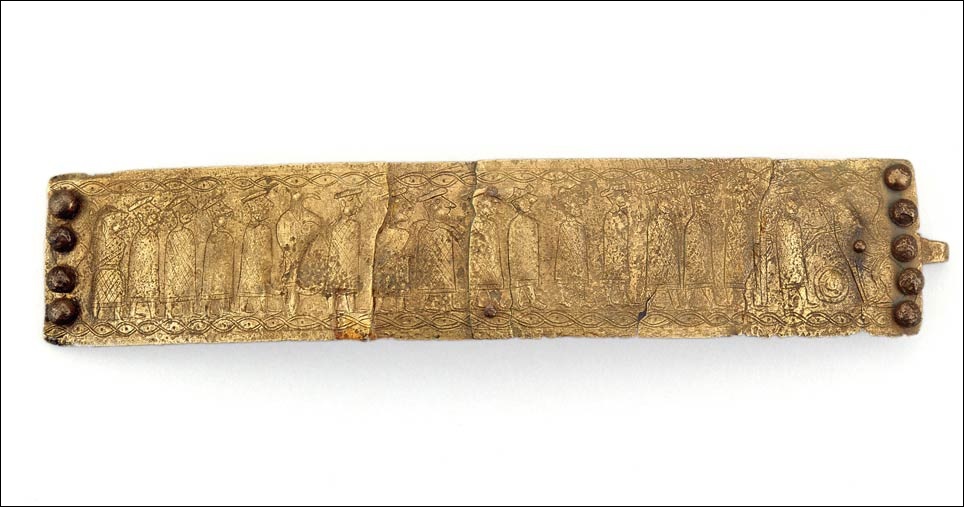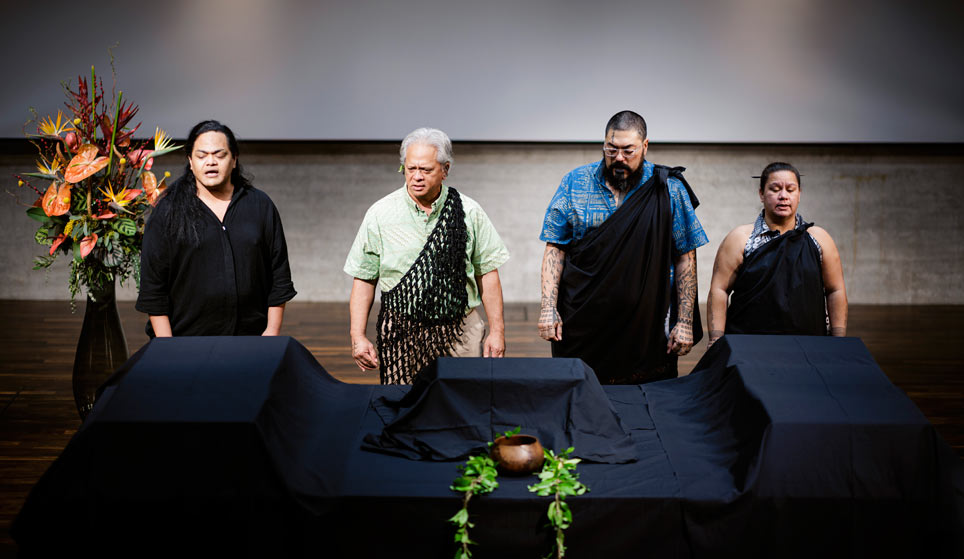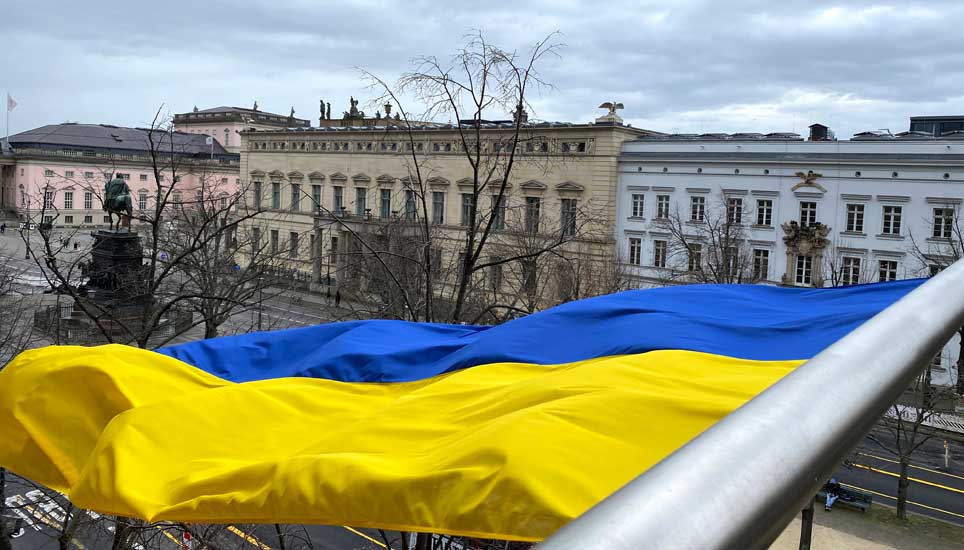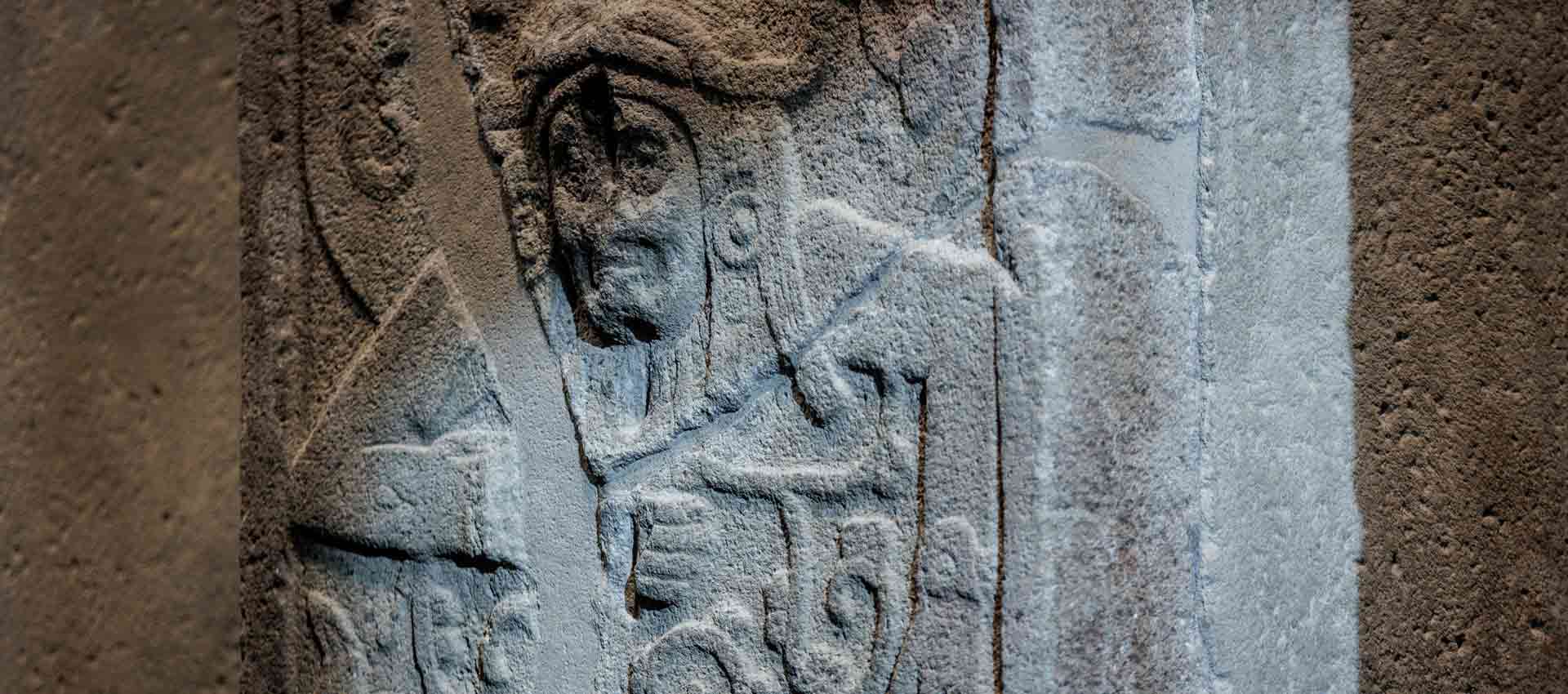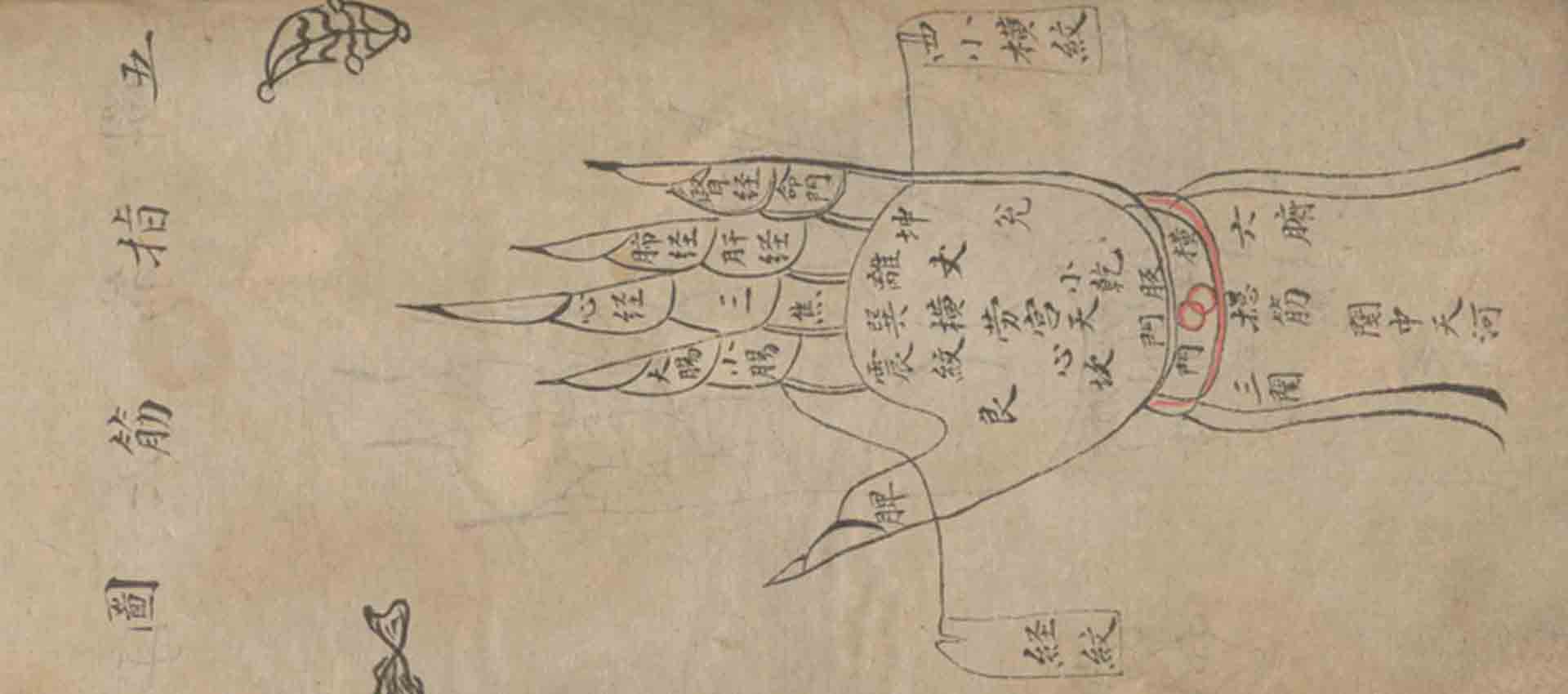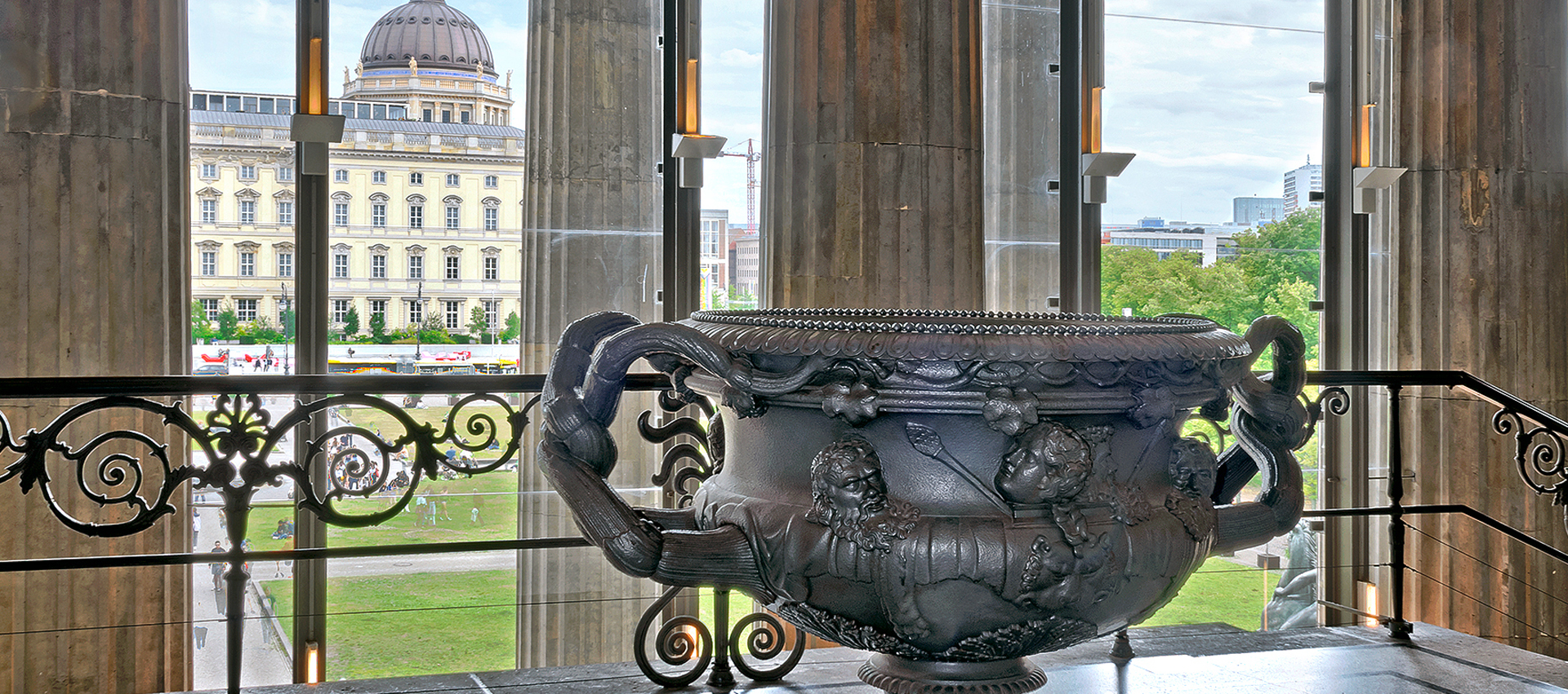Barbara Göbel, Director of the Ibero-Amerikanisches Institut, and Wiebke Ahrndt, Director of Übersee-Museum Bremen, on the role of cultural institutions in the globalized present.
Ms. Ahrndt, looking at the history of Übersee-Museum in Bremen gives the impression that the expression “globalization,” which is so popular today, has been around for a good hundred years. What was your museum’s self-image when it started in 1896?
Wiebke Ahrndt: The founding director’s idea was to show young businesspeople from Bremen what the world looked like. Today, you would probably call this intercultural education. It also had an interdisciplinary approach from the beginning in that the Übersee-Museum connected culture with nature. This is a hot topic for Humboldt Forum now, but it is something we were born with.
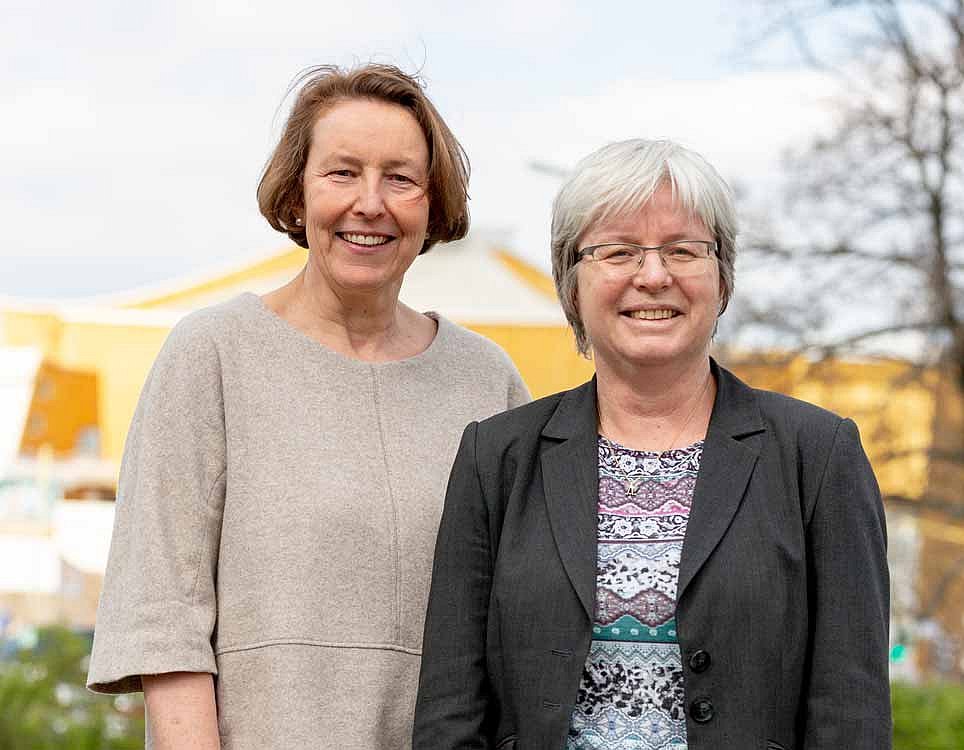
Ethnology is their connection: Wiebke Ahrndt (left) with Barbara Göbel at the Kulturforum in Berlin. © Andrea Vollmer
Ms. Göbel, the Ibero-Amerikanisches Institut (Ibero-American Institute) can look back on almost one hundred years of history.
Barbara Göbel: Compared to the Übersee-Museum, our institute is not that spectacular. The Ibero-Amerikanisches Institut was founded after Ernesto Quesada, an Argentinian intellectual, made a large donation. His private library with 82,000 volumes was the largest in South America, and he left it to the Prussian government with the stipulation that an institute be established that was more than a vast repository of knowledge. Library, science, research, and education were to be related in order to cross-fertilize each other. Combining three functions that are usually separate – information center, research center, and cultural center – has been a trademark of the Ibero-Amerikanisches Institut until today and effectively makes it a bridge between institutions.
Bridge is a good cue: When you mentioned the businesspeople of Bremen, Ms. Ahrndt, you described a bridge with only one lane. In early phases of globalization, the goal was for the Global North to learn something about the Global South. Transferring knowledge in the other direction was not part of the plan.
Ahrndt: That is correct. The basic idea was actually economic: An aspiring businessman was supposed to learn something about the economic strength of other countries; he was supposed to learn what made people around the world tick and do business with them. Not last, he was supposed to learn about nature; in this context that means resources and raw materials. So the educational mandate was to study trade and goods; this was of course meant to be a one-way street. Today we need an exchange that functions in both directions.
Before we talk about different subject areas we should briefly clarify why we even need cultural exchange. At a time when European nations are closing themselves off again, it can’t be taken for granted anymore.
Ahrndt: As institutions we are in favor of a tolerant world. Exchange is essential for our work. Knowledge transfer is what makes it possible to position yourself in an increasingly complex world. At the moment, we are having deep discussions on the restitution of cultural assets. The extreme positions say that we should return everything in our ethnological collections. I oppose this position since in my opinion, the restitution debate mainly concerns culturally and historically sensitive objects. Most of our collection is not even affected. But despite the details, we should not lose sight of the fact that these institutions are immensely important today. It is difficult to overestimate the value of an ethnological institution.
Göbel: To return to the image of the bridge, I think we must go far beyond a two-way street. It is no longer just a matter of cultural exchange. Instead, it involves negotiation processes that incorporate different viewpoints and in which positions always develop in relation to the other positions. That is why in an interdependent world, collection institutions like libraries or museums have gained importance. The main challenges are to make access to collections easier, which increases participation. In times of very great political, economic, and institutional volatility, a great advantage of institutions like the Ibero-Amerikanisches Institut is their reliability and stability. We live in times when spectacular things are often expected of cultural and scientific institutions. But maybe our real value is that we are stable, predictable places that can be relied on in uncertain times.
The Global North still has sovereignty of interpretation of the world.
That is a fascinating point of view, since they say that our digitalized present has created an era of delocalization. And in this situation, you speak of exclusivity and the value of concrete places of culture and knowledge.
Ahrndt: Cultural institutions as actual places are still important. For example, it turns out that digitalization has not reduced the number of visitors. On the contrary, the more a museum is present on the Internet, the more attractive the actual location becomes. Take the Mona Lisa: the fact that this painting can be found all over the world on coffee mugs and online increases the desire to see it in person. What we are experiencing now can be described as the democratization of knowledge: you can be at the end of the world and visit a German museum from there.
So participation in knowledge seems to be increasing worldwide yet you recently emphasized the advantages of so-called metropolises of knowledge, Ms. Göbel.
Göbel: What we need more of in the context of digital transformation are stable hubs that make access to complex knowledge and cultural diversity possible and that support interaction. For this reason, working on relationships is a focal point in our institutions today. We are turning into networking locations. It is a big and very expensive challenge to interconnect various infrastructures of knowledge more intensively.
Would you say that these hubs are increasing in our globalized present? Does that increase the competition among institutions?
Ahrndt: I don’t think so. There has always been competition. Look at the early collectors for ethnological museums: they traveled to places and found out that other collectors were already there. So there has always been competition. The same applies to networks. Think of the natural sciences before World War I: at that time researchers were already networking intensively.
Göbel: Of course competition has always existed. But today’s world is even more multi-polar. Today research objects would probably not be sent to Bremen or Berlin; they would be circulated in other ways to let others participate. From this point of view, the world really has become more complex and intertwined.
This new level of intertwining has led some people to speak of the “competition of narratives.” These people mean that the Global North has not only forfeited its function as focal point, it has also lost interpretational sovereignty over the world. Would you agree?
Göbel: Indeed we do have a different understanding of the classical term “modernity” today, for example. In the past, the term was strongly connected to concepts of the European Enlightenment. The increasingly extensive inclusion of other forms of knowledge production has caused Eurocentric positions to be questioned. However, there has not been any fundamental breakup of historically cultivated asymmetries of knowledge.
Ahrndt: I agree: We still have the rich North and poor South. Take an institution like a museum: We still have sovereignty of interpretation in our hands here. That’s simply due to the fact that the North provides the curators. We should be very honest about this. While we have been talking about a change in perspective since the 1980s, the final interpretation still lies with us.
Göbel: But that isn’t just due to the curators. With regard to exhibitions, at least, they are participating with each other more and more, developing and implementing projects together with colleagues from the Global South. I think that we should push our way even further into the “engine rooms” of collecting institutions and organize object management with multiple perspectives and more participation. Co-managing collections does not just mean making media and objects locatable, but expanding established categories conceptually, allowing multiple perspectives of a medium or object and making the inclusion of different actors possible. It isn’t enough to adopt different perspectives in the showcase – that is, in the exhibition – and decentralize them. We need to implement multiple perspectives in the engine room of the collecting institutions.
More and more, cultural institutions are becoming places to network.
Ahrndt: That is indeed the greatest challenge at present. Anyone who wants to find something in current databases needs to have been socialized in the Western system of knowledge and adopt Western thinking and knowledge history. If I don’t have the right terminology, this flood of data brings me absolutely nothing.
Göbel: In digitization we focus too much on an image; the real challenge is in the classification of digital objects in order to make them accessible and usable in the future as well. We have to keep our eyes on the whole digital value chain to avoid having huge, unstable information graveyards in the future.
Jürgen Habermas called this inequality in communication the “asymmetry of communication conditions.” In Berlin, the plan is to counteract this by inviting curators from the respective cultures of origin to the Humboldt Forum so that they can present their cultures to us. Is that a solution to the asymmetry?
Ahrndt: That is a very exciting approach. In this context, we could also discuss the classification of objects. As institutions, we could come to completely new conclusions if we learned to put the world into different pigeonholes. That would be the real order of the day.
Barbara Göbel
An ethnologist, Göbel has been the director of the Ibero-Amerikanisches Institut since 2005. She previously worked as an ethnologist at the universities in Bonn, Göttingen, Cologne, and Tübingen and the Collège de France. She has been an honorary professor at Freie Universität Berlin since 2017.
